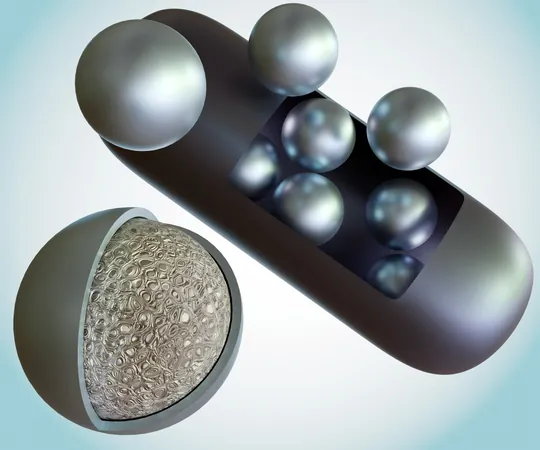
Surprising New Research: Higher Y-90 Dosage Could Revolutionize Hepatocellular Carcinoma Treatment and Boost Survival Rates!
2024-10-14
Author: Daniel
The Unsettling Landscape of Hepatocellular Carcinoma
Hepatocellular carcinoma carries a dismal prognosis, with less than 20% of patients expected to survive five years after diagnosis. Factors such as late-stage detection and limited efficacy of current treatment protocols significantly contribute to these alarming statistics. With locally advanced HCC presenting unique challenges—like vascular invasion—therapeutic options often vary widely, leading to inconsistent clinical outcomes.
Y-90 radioembolization has emerged as a minimally invasive treatment option, delivering potent radiation directly to tumor sites through the bloodstream. Initially gaining traction in the early 2000s, this therapy has shown promise, but previous guidelines suggested that a dosage of around 120 Gray (Gy) may be necessary for effective disease control. However, the optimal Y-90 dosage that translates to better clinical outcomes remains a formidable question.
What the Study Revealed
In this pivotal study, researchers analyzed the data from 413 patients with advanced HCC who underwent Y-90 microsphere therapy from January 2008 to May 2019. Participants were categorized based on whether they received a higher Y-90 dose of 150 Gy or more, with the average dose for the cohort being 154.7 ± 80.4 Gy.
Remarkably, patients receiving the increased dosage of ≥ 150 Gy exhibited significantly improved survival rates—living nearly 15 months longer than their counterparts who did not receive the elevated dose. Furthermore, an impressive 17% of those whose tumors were reduced or downstaged through Y-90 therapy went on to receive conversion therapy, such as surgical resection, liver transplantation, or thermal ablation. These patients experienced a remarkable fourfold increase in lifespan compared to those who had no further intervention.
Looking Ahead: Potential Transformations in Treatment Protocol
Dr. Chen Kaina, the lead author of the study, emphasized the importance of adequate radiation dosage that optimally enhances patient outcomes without causing additional harm. “Now that we know a higher dose can potentially help achieve better outcomes, this can guide treatment planning and discussions between patients and their healthcare providers,” she stated.
Senior author Dr. Pierce Chow noted the higher prevalence of liver cancer in Asia and stressed the need for ongoing research. "End-to-end research is key to understanding its molecular underpinnings, enhancing diagnosis, and improving treatments so patients can have better outcomes. This study is one of many we are conducting on hepatic cancer,” he affirmed.
Additionally, the researchers are embarking on a promising multinational trial to evaluate the benefits of combining Y-90 therapy with immune checkpoint inhibitors, further exploring avenues to augment treatment effectiveness for HCC.
This compelling research not only illuminates the potential for higher Y-90 dosages to transform patient outcomes but also sets the stage for exciting developments in the ongoing battle against hepatocellular carcinoma. Stay tuned as we continue to track these advancements that could change lives!



 Brasil (PT)
Brasil (PT)
 Canada (EN)
Canada (EN)
 Chile (ES)
Chile (ES)
 España (ES)
España (ES)
 France (FR)
France (FR)
 Hong Kong (EN)
Hong Kong (EN)
 Italia (IT)
Italia (IT)
 日本 (JA)
日本 (JA)
 Magyarország (HU)
Magyarország (HU)
 Norge (NO)
Norge (NO)
 Polska (PL)
Polska (PL)
 Schweiz (DE)
Schweiz (DE)
 Singapore (EN)
Singapore (EN)
 Sverige (SV)
Sverige (SV)
 Suomi (FI)
Suomi (FI)
 Türkiye (TR)
Türkiye (TR)